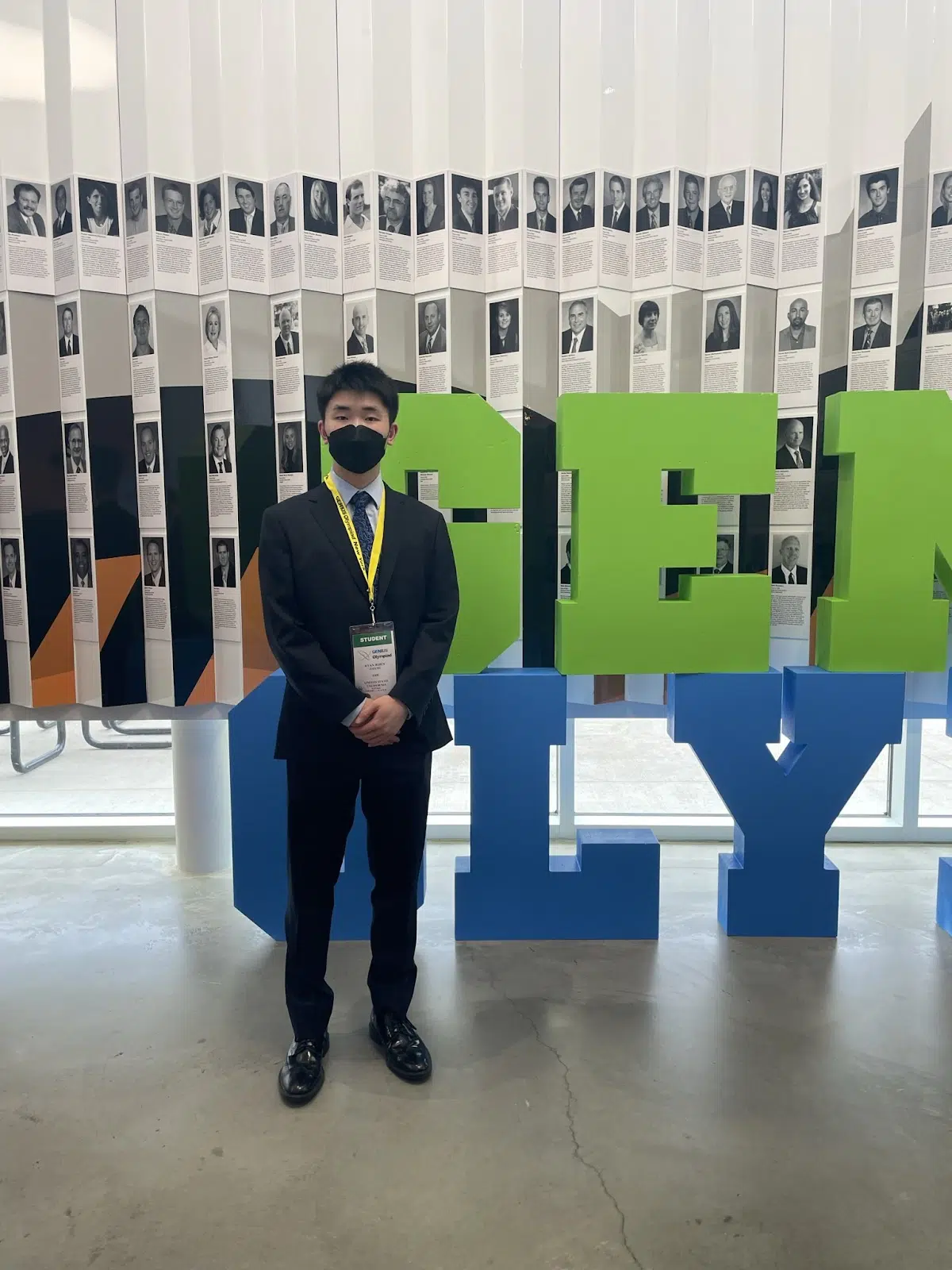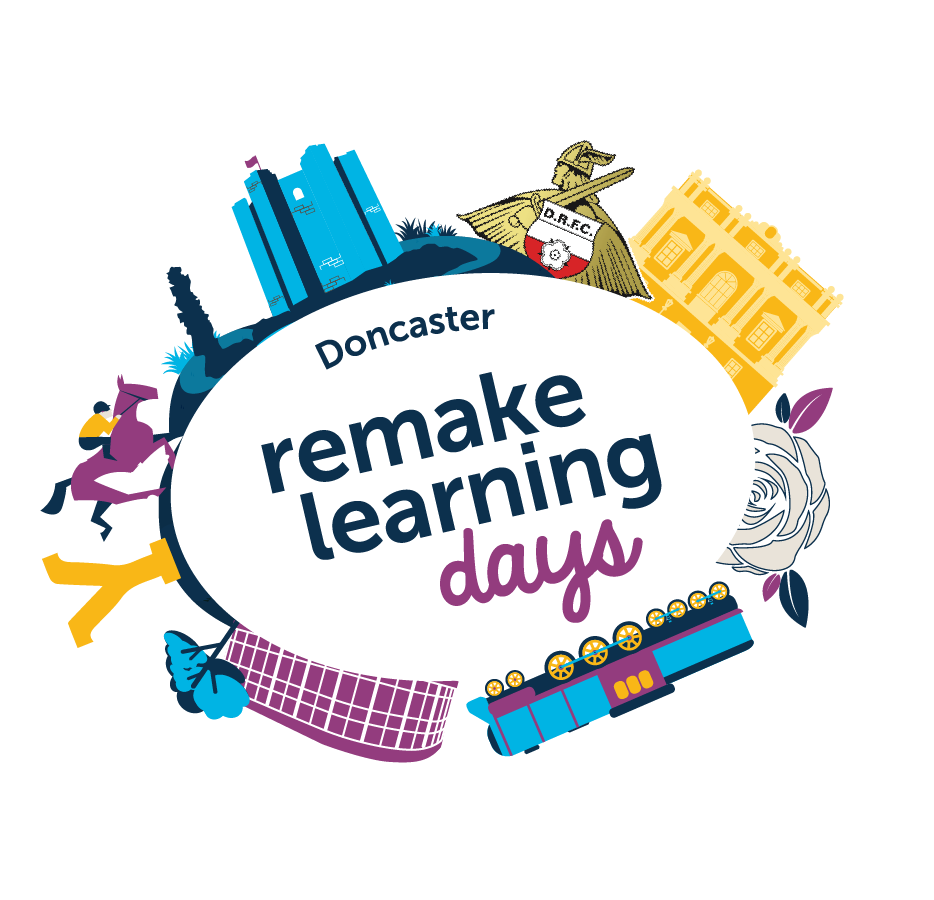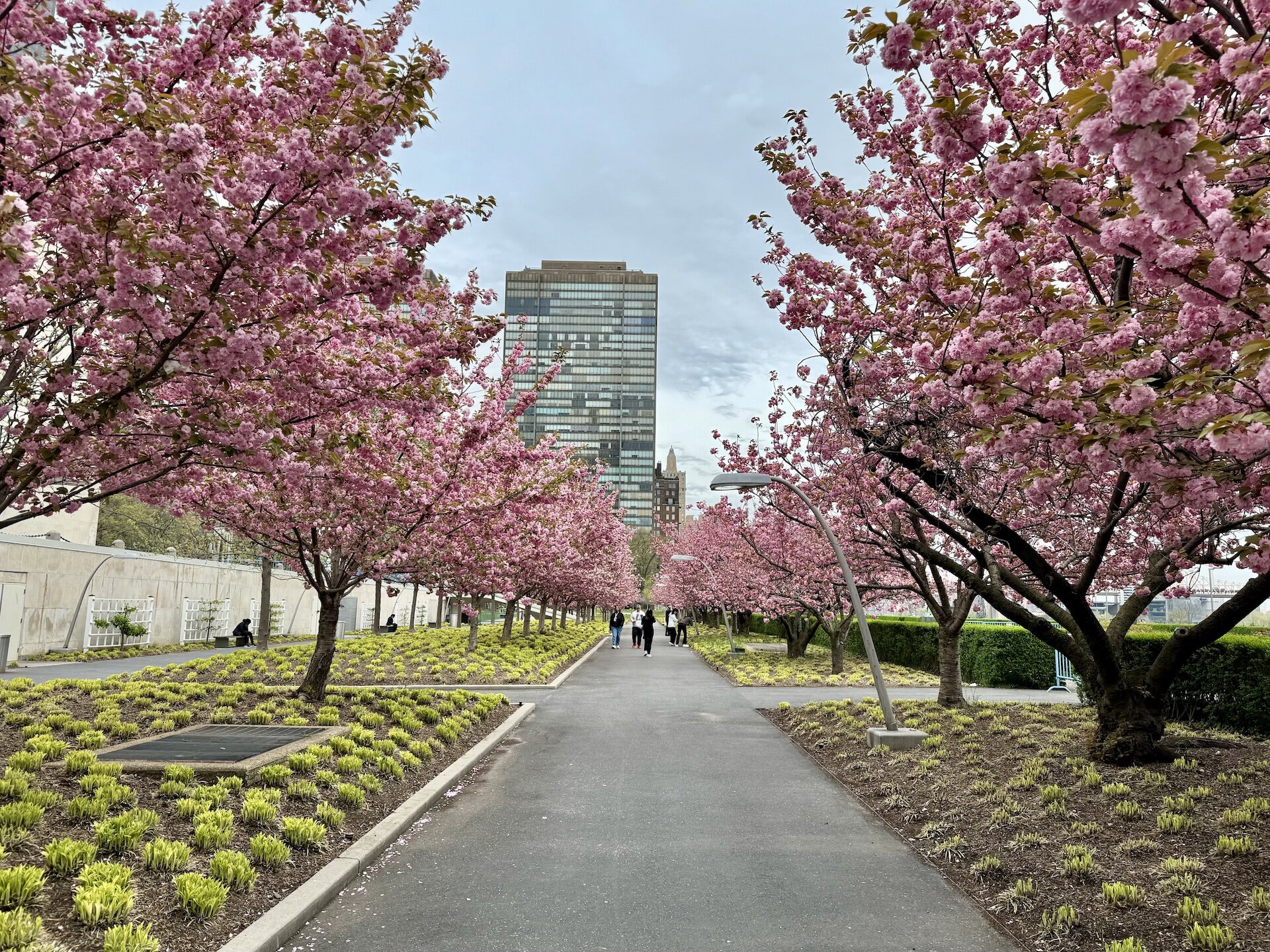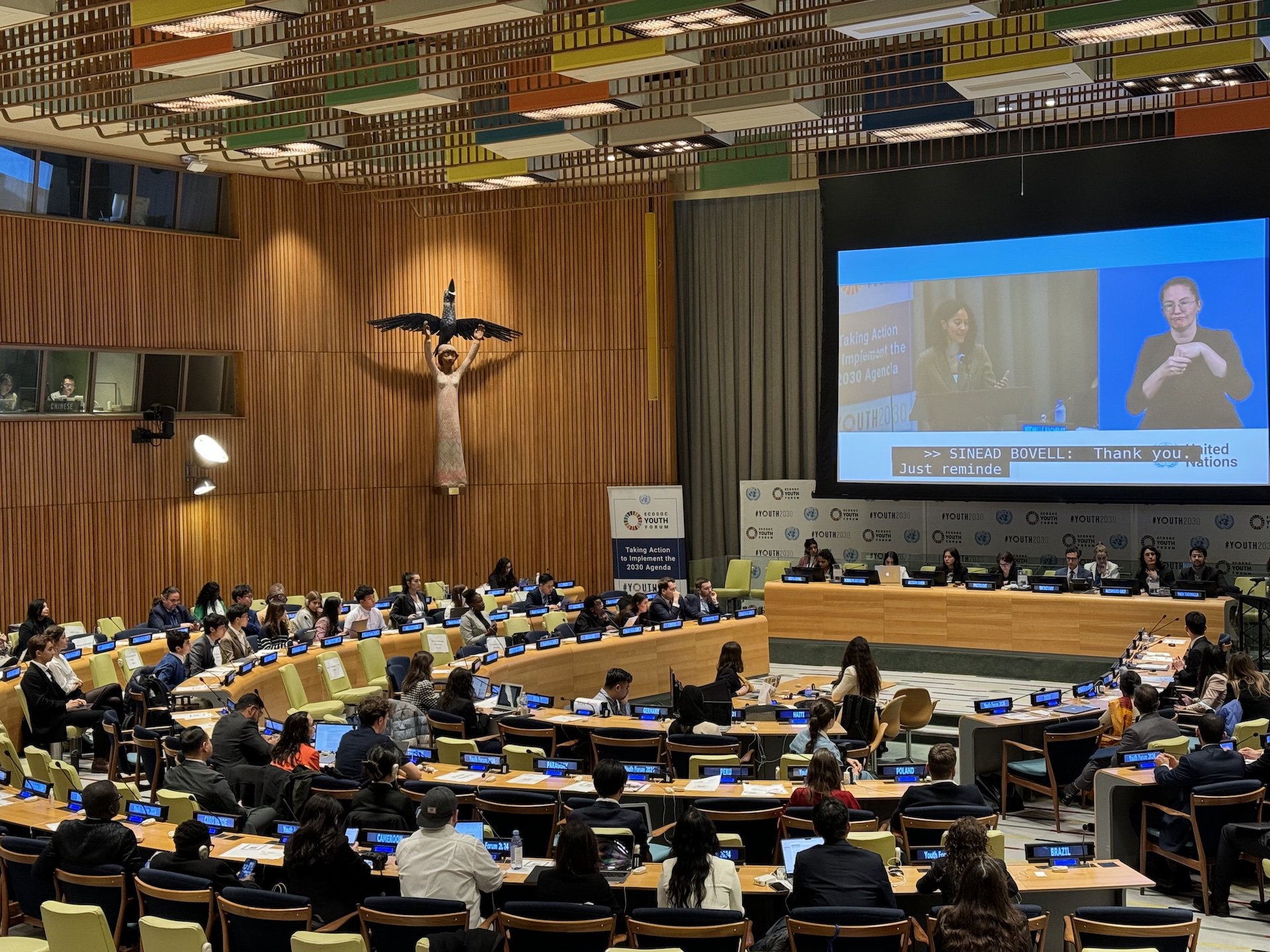In this interview, meet Ryan Zhang, a Youth Fellow and young Planetizen who notably participated in the 2023 edition of the LearningPlanet Festival!
You are one of the first advocates for the Planetizen movement, echoing Dr. Francois Taddei’s Learning Planetizen Manifesto. Can you share what initially inspired you to engage on this issue?
Growing up, I was lucky enough to be able to pursue a career in competitive junior golf, including traveling to many locations around the country and the world. Constantly immersed in the ever-changing nature that surrounds golf courses everywhere, I had been acutely attuned to the natural world since a very young age. Golf, although it may not seem so at first, is in fact a very social sport. Precisely because it is not a team sport means that one almost always meets new people from drastically disparate backgrounds. After starting high school, I became more aware of the relationship between humans and our relationship to the natural world and the problems that currently exist.
Following my sense of intellectual curiosity and responsibility, I pursued efforts to address the issues starting from a small scale, becoming involved in scientific research in climate change-related subjects, volunteering at local institutions dedicated to climate and social issues, and even starting some of my own grassroots efforts with other youth leaders.
Through one of my mentors, I was led to expand my vision of youth impact to a larger global scale and exposed to the United Nations and their Sustainable Development Goals (SDGs) as well as other global institutions such as the LearningPlanet Alliance. I instantly felt an intimate connection to the mission of the Alliance, namely Dr. Francois Taddei’s Learning Planetizen Manifesto and its innovation on the previous concept of global citizenship by adding the increasingly important issues of climate and the relationship between humans and the planet.
As a result, I joined LearningPlanet’s Youth Fellows community and founded Project Planetizen to further my belief in this philosophy as well as to hopefully be one of the leading youth advocates of Planetizenship.



What are the core pillars of being a Planetizen in your opinion, and how have you personally progressed as a Planetizen?
To me, embracing the identity of a Planetizen revolves around a spirit of passion and an atmosphere of community. Throughout my journey to become the Planetizen that Dr. Taddei and I both envision and my founding of Project Planetizen, I have identified five main pillars aimed to help guide youth around the world and myself to be future-ready.
Pillar 1
My first step into the world of global leadership came from research, and I believe it is essential to any youth seeking to be a Planetizen. To conduct research is to cultivate a spirit of endless curiosity and the courage to explore the frontier. It develops resourcefulness because most everyone begins their research journey alone and with no support, financial or intellectual. Research fosters collaboration with peers. Most importantly, it trains the all-important ability to overcome challenges, to overcome not just academic challenges, but to overcome the current barriers to the welfare of people and the planet, to change the way industries and economies operate for the betterment of these two all-important parties.
Pillar 2
In order to support their spirit of curiosity, Planetizens must have a broad and diverse understanding of the world, both natural and human; this comes from education. However, a traditional education i.e. schooling and classes on various standard disciplines, can be elusive for many. Some of us enjoy the privilege of accessible and high-quality education, and we should be ever-appreciative.
This does not mean, however, that we cannot criticize the current system and seek further improvement for all. To be a Planetizen is to embrace a global education, one that fosters community, empathy, and unity across boundaries and that prepares those engaging in it to embody belonging, and responsibility for ourselves and to our progeny. This diverse education is what can propel Planteizens into shaping the future of the world to hold values and ethics above production and profit.
In my life, I have broadened my own horizons through learning from the endless resources that I am fortunate enough to have access to through the internet, but I have also learned just as much from teaching others and interacting with those from vastly different backgrounds.
Pillar 3
The third pillar of my future-ready philosophy involves…advocacy! Advocacy leads directly from research and education because advocacy requires knowledge of the world, the planet, and the human soul. A Planetizen must not approach advocacy lightly, as it is a powerful tool that can be misused, either intentionally or unwittingly. However, it is also a tool to foster community and allyship.
Advocacy must also be equal, that is to say, a Planetizen advocates for the benefit of all, not for the benefit of some at the expense of others. Planetizens advocate for the betterment and union of the human condition across the world In conjunction with the betterment and union of humankind and the natural world. For me, advocacy has taken shape in my promotion of values-based concepts such as conservation conducted with diverse human perspectives and a complex understanding of nature.
Pillar 4
The fourth pillar leads from advocacy and equality. Advocacy must be informed by research and education but also by a strong connection and empathy for other human beings and the planet. As such, diversity and inclusion is the fourth pillar. In order to embody Planetizenships, we must possess a deep sense of compassion for the global community and seek to invite diverse perspectives and backgrounds into the Planetizen community.
Diversity and inclusion have made great progress in helping us connect with communities we may not have traditionally interacted with, but we can not call ourselves true Planetizens until we have also included the planet and all the living beings that inhabit this sphere in the cosmos with us in our definition and philosophy of diversity and inclusion. On my own, I have not only included regular reflections on my own biases and those imposed upon me in my routine but actively seek opportunities to interact with those with different opinions of perspectives to practice empathy and to promote diversity. This sometimes even involves putting myself in the shoes of plants and animals.
Pillar 5
As leaders of the next generation, Planetizens must tackle the leading issues of the world. To do so requires the cultivation and synthesis of all four previous pillars into the fifth and final pillar of the future READY philosophy. Being ready for the future requires an unceasing spirit of curiosity to keep pushing forward the boundaries of knowledge. It requires global education about not just academics but society and the planet. It requires speaking up for our ambitions and those who receive unjust treatment. It requires the inclusion of diverse perspectives with an attitude of respect. It culminates in one concept, youth innovation for the future.
To innovate is to always continue to improve ourselves, our ideas, our actions, and our attitudes. To innovate is to embrace creativity and diverse ideas and to be unafraid of the unknown and bleak odds. To innovate is to listen to the needs of all humans and the needs of the natural world and to promote the welfare of all above all else. The future of the planet and of society is in our hands as Planetizens, and we must forge forward to solve the problems that were deemed impossible to solve.
In my own life, I try to embrace innovation on a daily basis, whether it is creating a novel solution in my research or expanding my social circle to include ever more diverse individuals and inspirational youth. Nature constantly innovates to the conditions at hand, and we must mimic its adaptability. I strive to innovate not for myself, but for my community, the global community, and our relationship to the planet and its health. Innovation is only successful innovation if it results in benefits for all.
Meanwhile, congratulations on being one of the grand prize winners for the ASPIRE 2030 Hackathon hosted at the LearningPlanet Festival 2023. What was the experience like?
The Festival was a great experience. I am so honoured to have been awarded the grand prize on behalf of Project Planetizen and would like to extend my gratitude to the youth leaders organizing the event and LearningPlanet Alliance as well as all partners for supporting it.

Overall, the Hackathon was a great opportunity for me to demonstrate my progress in embodying Planetizenship. The project I submitted was based on the research I had conducted over the past year, as well as including aspects of my advocacy work. The project heavily emphasized aspects of innovation for the betterment of humans and the planet and for the transition of the driving factor of the world away from production and profits to ethical progress.
The project included aspects of indigenous knowledge as a cornerstone of ecological background, as well as leveraging the diverse knowledge and experience base I slowly accumulated over my time working on the project. In the future, I hope to be at the forefront of Planetizenship and contribute to the organisation and creation of more events like the LearningPlanet Festival and Hackathon I felt were so helpful for my progress in Planetizenship.
Meet Ryan
Ryan Ruien Zhang is an accomplished young researcher, advocate, and junior golfer who has been pursuing his philosophy to better the world through the union of people, technology, and research, and the environment. Taking inspiration from Dr. Francois Taddei’s Learning Planetizen Manifesto, Ryan founded Project Planetizen to put his mission to action by combining his research, advocacy, and service into a cohesive initiative. Through his work, Ryan hopes to impact the world’s perspective on the relationship between humans and the planet as well as inspire the next generation of global leaders.
He has curated conservation programs in Costa Rica, founded and leads numerous environmental initiatives in his local community, published his research on AI-based biodiversity tracking in IEEE, and been invited to present his research to the Conference on Sustainable Technologies and Cornell Lab of Ornithology. In the past year, Ryan joined the Learning Planet Youth Fellow community and now actively participates in advocacy efforts, working with the Marine Mammal Center’s Ocean Advocacy Collective and volunteering as a youth steward with Grassroots Ecology. Currently, Ryan is continuing his research with MIT’s Civil and Environmental Engineering Department as well as collaborating with Cornell’s Lisa K. Yang Lab of Conservation Bioacoustics.
Ryan is also a nationally ranked junior golfer, placing at the highest level pre-collegiate tournaments and competing at various junior world championships. In his free time, Ryan loves to build mechanical keyboards, read fantasy novels, tend to his garden, and play ping pong with his friends.



